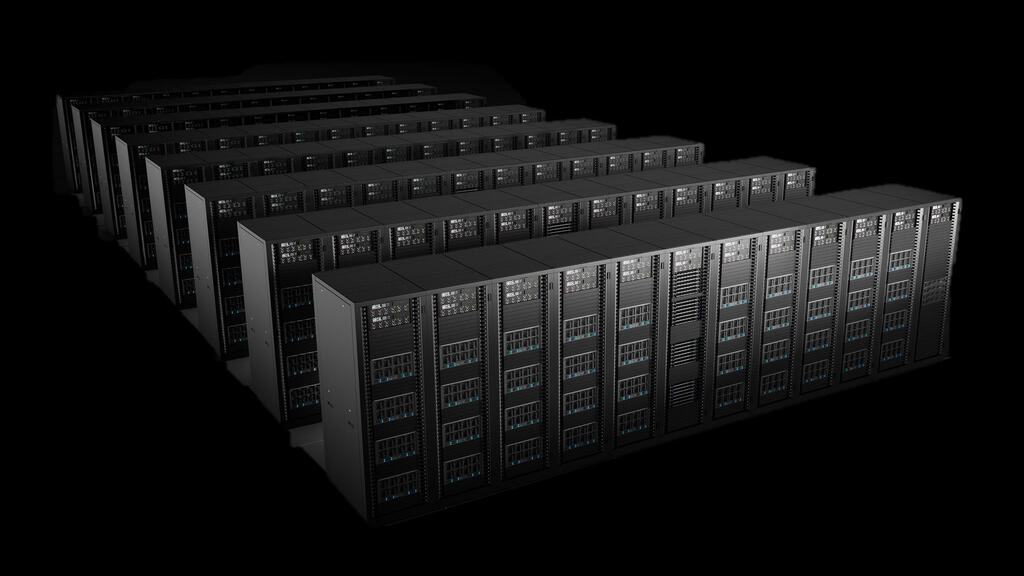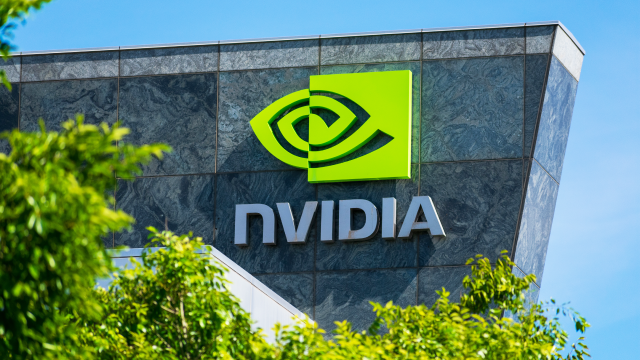Getting your Trinity Audio player ready...
The American semiconductor giant, NVIDIA, unveiled on Monday morning a supercomputer named Israel-1, estimated to be worth hundreds of millions of dollars.
More stories:
According to the company, it is the most powerful supercomputer in Israel and one of the most powerful on earth. It includes 2,048 H100 graphic processors and 2,560 BlueField-3 DPU chips, all developed locally.
The stated purpose of the new supercomputer is to facilitate collaborations with industry, support internal R&D, and serve as a showcase for building high-performance computers based on NVIDIA's new Spectrum-X platform.
A supercomputer is an exceptionally powerful entity, composed of thousands of processors, used for performing highly complex tasks, including the development of generative artificial intelligence applications and quantum computing, as well as running scientific simulations.
The main advantage to having a supercomputer in Israel is primarily that local users no longer need to pre-order processing time on scattered supercomputers worldwide.
Currently, supercomputer facilities rent out their usage time to external clients. Of course, availability corresponds to payment, making the use of this technology expensive and cumbersome.
An Israeli supercomputer can greatly streamline processes for local entities and accelerate their research and development endeavors.
The establishment of the supercomputer in Israel marks a significant milestone, introducing an internationally recognized infrastructure that surpasses the standard capabilities found in the local industry.
Israel-1, unveiled at the recent Computex conference in Taiwan, is poised to deliver exceptional AI performance, reaching up to 8 exaflops (equivalent to 10 raised to the power of 18, a quintillion). This achievement positions it among the world's fastest supercomputers for executing artificial intelligence computations.
The timing of this announcement is significant. In recent years, Israel has successfully attracted prominent tech giants like Google, Amazon, Oracle and Microsoft, all of whom have established their own local cloud computing systems.
To facilitate the establishment of these data centers, local telecommunications companies have partnered with these tech giants to create high-speed fiber-optic communication infrastructures, connecting Israel to both Asia and Western Europe with remarkably low latency.
Although NVIDIA's primary focus for Israel-1 is on demonstrations and internal usage, when asked by Ynet, the company did not rule out the possibility of also catering to customers in neighboring countries within the region.
Nvidia's initiative is distinct in that it does not involve any state investment, despite the previous announcement by the Bennett-Lapid government last year regarding the allocation of funds for an Israeli supercomputer project, estimated at approximately $78 million.
However, given the typical uncertainties that arise following a change in Israel's government, it remains unclear to what extent this budget will be used for the development and construction of the supercomputer.
In fact, Nvidia's announcement could potentially further postpone the establishment of the supercomputer, as the government may prefer to encourage private sector investments in the field rather than relying solely on the current state budget, which may not be sufficient.
By year's end, the company plans to have Israel-1 up and running at its own facility. While Nvidia has not disclosed comprehensive details concerning the expenses and specific functions of the supercomputer, as the launch date draws near, more information likely will be made available.
First published: 12:27, 05.29.23



